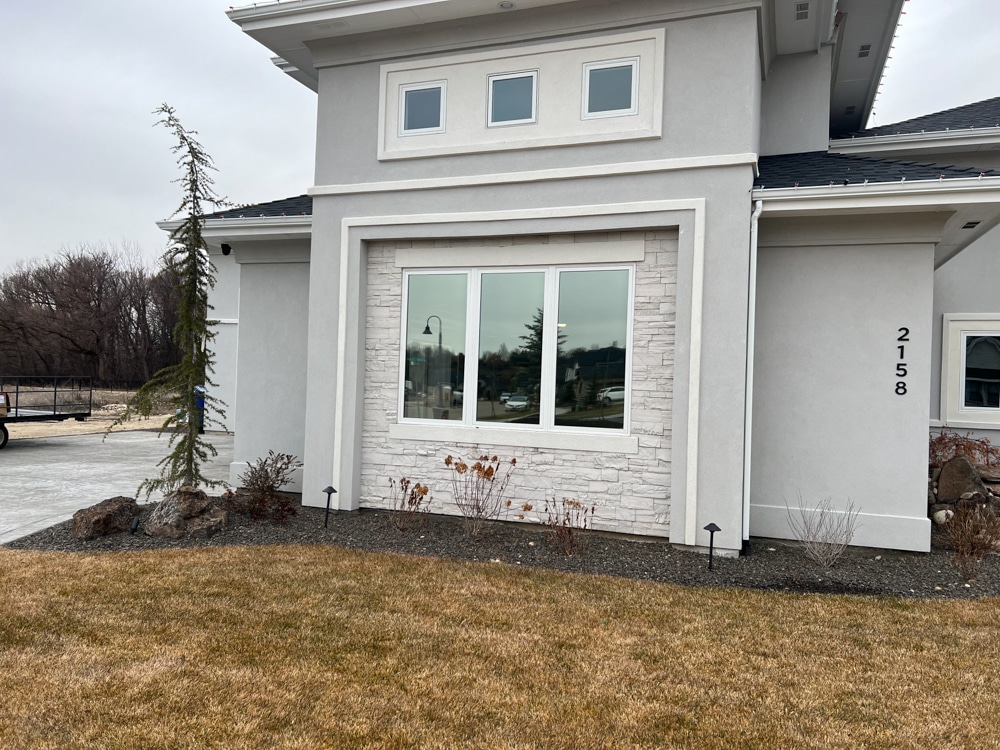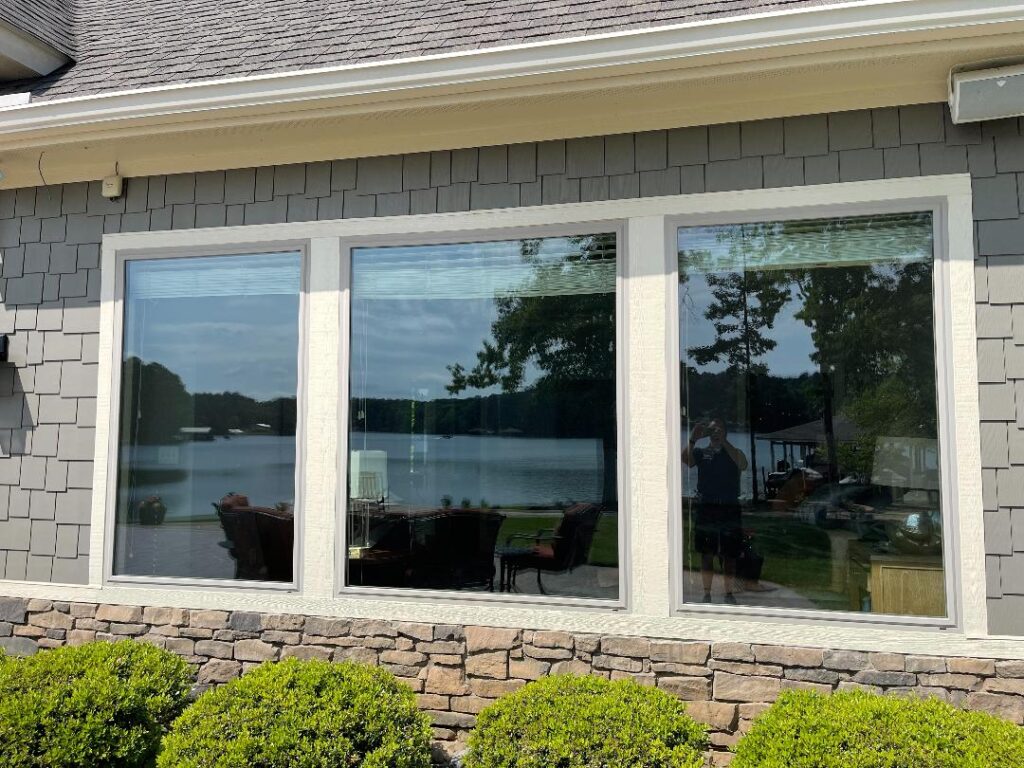Exactly How Residential Window Tint Can Reduce Power Costs
Exactly How Residential Window Tint Can Reduce Power Costs
Blog Article
Exactly How Residential Window Tinting Improves Your Home's Energy Performance
Residential home window tinting offers an engaging option for property owners seeking to enhance energy effectiveness within their space. By using specialized movies to windows, it efficiently reduces warmth transfer, consequently maintaining indoor temperatures and decreasing the requirement for excessive home heating or air conditioning. This not just curtails energy intake yet additionally provides a much more comfy atmosphere by alleviating glow. Understanding the nuances of just how tinting works and selecting the suitable kind for your home can be critical. Oddly, what variables should one consider before making this financial investment?
Understanding Home Window Tinting
Comprehending home window tinting is vital for house owners seeking to boost both convenience and energy performance in their living rooms. Residential Window Tint. Home window tinting involves the application of a slim movie to the interior or outside surface of glass home windows. This film can significantly regulate the amount of sunlight and warm that gets in a home, therefore influencing interior climate problems
There are different sorts of window tinting movies offered, each with unique properties. Dyed films absorb solar energy, while reflective films disperse it away from the glass surface area. Ceramic movies use a balance of presence and warmth denial, making them a prominent choice amongst home owners. The performance of home window tinting is often gauged by its Visible Light Transmission (VLT) percentage, which suggests how much light can pass via the film.
Benefits of Power Effectiveness
Window tinting not only enhances appearances yet also plays a significant role in improving energy efficiency within household rooms. By reducing heat transfer via home windows, tinted movies develop an extra secure indoor climate, which can lead to significant reductions in power intake for home heating and air conditioning. This energy efficiency translates into reduced utility expenses, providing homeowners with considerable long-lasting financial savings.

Additionally, window tinting boosts the comfort of living areas. By reducing glow and obstructing dangerous UV rays, tinted windows produce a more pleasurable setting, which can cause improved wellness for owners. The protection versus UV rays also helps preserve furniture and flooring from fading, contributing to the long life of home things.
How Tinting Works
Tinting films run with a combination of innovative materials and innovations developed to regulate the amount of solar energy entering a home. Mostly composed of polyester, these movies frequently incorporate metal or ceramic fragments that absorb and mirror heat. This dual capacity allows them to substantially decrease the infiltration of ultraviolet (UV) rays and infrared radiation while allowing visible light to travel through.
The efficiency of window tinting is measured by its solar warm gain coefficient (SHGC), which suggests just how much solar power is transmitted with the home window. Reduced SHGC worths are more effective as they represent higher warm denial. Furthermore, home window tints can feature a range of tones, allowing property owners to customize their aesthetic preferences while enhancing energy efficiency.
Furthermore, these movies function as an obstacle, protecting against warmth loss throughout chillier months by mirroring interior heat back right into the living space. This thermal insulation result enhances the cooling benefits gained throughout warmer months, adding to a well balanced indoor environment year-round. By managing solar power efficiently, household home window tinting not only enhances convenience however likewise plays an essential duty in decreasing power consumption and reducing utility bills.
Choosing the Right Tint

There are various sorts of window movies readily available, including colored, metalized, and ceramic. Colored films are cost-efficient yet might have limited toughness. Metalized films use much better warmth being rejected however can hinder digital signals. Ceramic films offer outstanding warmth control without endangering exposure and are highly resilient, making them a prominent option.
Noticeable light transmission (VLT) is another crucial element, as it suggests the quantity of natural light that can go through the colored glass. House owners should pick a tint with a VLT that matches their lights preferences while still giving adequate glow reduction.
Additionally, analyzing the solar heat gain coefficient (SHGC) can assist establish exactly how well a tint can obstruct heat from sunlight. A reduced SHGC Bonuses indicates better warmth control, eventually boosting power performance.
Installation and Maintenance Tips
Appropriate setup and maintenance are vital parts in optimizing the benefits of domestic home window tinting. To accomplish optimum results, it is advisable to employ a qualified specialist for installment. This makes sure that the tint is used correctly, preventing air bubbles, wrinkles, or misalignment that might compromise efficiency. Specialists also use specialized devices and techniques, which can enhance the resilience and effectiveness of the tint.
Following installment, maintenance is necessary to extend the life of the home window film. It is advised to wait at the very least 30 days before cleaning up the tinted home windows to allow the sticky to treat fully.
Dealing with these concerns promptly can protect against further damage and maintain power performance. By sticking to these installation and maintenance ideas, home owners can guarantee their home window tinting continues to supply significant power cost savings and comfort for years to come.
Conclusion
To conclude, domestic home window tinting acts as a reliable remedy for boosting power effectiveness within homes. By lowering heat transfer and blocking dangerous UV rays, window films add to reduce energy usage and enhanced indoor convenience. The choice of suitable tinting materials, along with correct installment and upkeep, additionally maximizes these benefits. Inevitably, home window tinting represents a lasting investment that not only decreases utility bills however also advertises a comfy living environment throughout the year.
Window tinting includes the application of a thin film to the interior or outside surface area of glass click to read more home windows. By decreasing warm transfer with windows, colored films produce a much more steady indoor environment, which can lead to considerable reductions in energy usage for home heating and air conditioning.The efficiency of home window tinting is measured by its solar warmth gain coefficient (SHGC), which indicates exactly how much solar energy is transmitted via the home window. By managing solar power efficiently, property home window tinting not only improves convenience but also plays an important duty in lowering power usage and lowering energy expenses.
By lowering heat transfer and blocking unsafe UV rays, home window films add to reduce power consumption and enhanced interior convenience.
Report this page